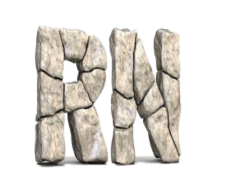The number 1476 in Roman numerals is MCDLXXVI. Here’s how it breaks down:
- M represents 1000.
- CD represents 400 (100 less than 500).
- L represents 50.
- XX represents 10 (two tens).
- V represents 5.
- I represents 1.
So, MCDLXXVI is equal to 1476 in Arabic numerals.
1477 in Roman Numerals
The number 1477 in Roman numerals is MCDLXXVII. Here’s how it breaks down:
- M represents 1000.
- CD represents 400 (100 less than 500).
- L represents 50.
- XX represents 10 (two tens).
- V represents 5.
- II represents 2.
So, MCDLXXVII is equal to 1477 in Arabic numerals.
Decimal to Roman Numeral Converter
Roman Numeral:
The year 1476 falls within the late 15th century, a period of significant historical, cultural, and scientific developments.
Here are some fun facts about the year 1476:
- Birth of Giuliano de’ Medici: Giuliano de’ Medici, a prominent figure in the Italian Renaissance and a member of the powerful Medici family, was born in this year. He played a significant role in the cultural and political life of Florence.
- The Bell Chimes of La Giralda: In Seville, Spain, construction on La Giralda’s bell tower was completed. The tower has become an iconic symbol of the city and is known for its distinctive architectural style.
- Leonardo da Vinci: The great Italian artist and polymath, Leonardo da Vinci, was 24 years old in 1476. He was already showing early signs of his genius in fields such as art and engineering.
- Battle of Vaslui: The Battle of Vaslui took place in modern-day Romania. It was a significant military conflict in the region during the 15th century, and it pitted the Moldavian army against the much larger Ottoman Empire forces.
- Printing Press: Although not directly related to 1476, the Gutenberg printing press, which played a pivotal role in the dissemination of knowledge and the spread of information, had been developed and was in use by this time.
- Publication of “Dictes and Sayings of the Philosophers”: William Caxton, the first English printer, published “Dictes and Sayings of the Philosophers” in 1476. This was one of the first books printed in English and marked an important milestone in the history of English literature.
- Lunar Eclipse: A total lunar eclipse occurred on March 3, 1476. Such astronomical events have fascinated people throughout history and continue to do so today.
- Cultural Renaissance: The late 15th century was a time of cultural renaissance in Europe, with the flourishing of arts, literature, and scientific inquiry. This period laid the groundwork for the profound changes that would follow in the 16th century.
- Exploration: European exploration was gaining momentum, with explorers like Christopher Columbus (born in 1451) already envisioning their journeys to the New World. The Age of Exploration was on the horizon.
- Music: The late 15th century was an exciting time for music, with the development of new musical forms and the emergence of composers like Josquin des Prez, who made significant contributions to Renaissance music.
These fun facts illustrate the rich and dynamic historical context of the year 1476, which was a transitional period marked by cultural and scientific advancements, exploration, and the beginnings of significant changes in various fields.
